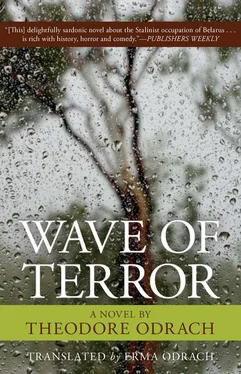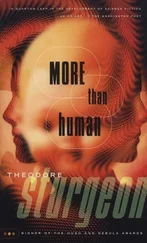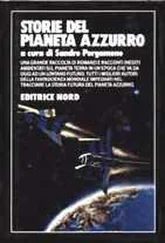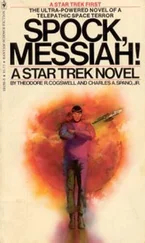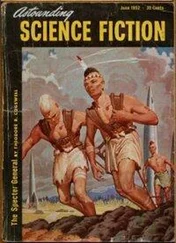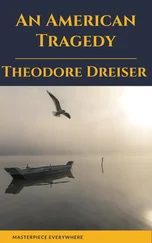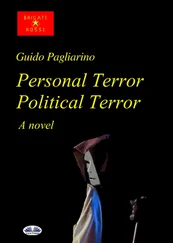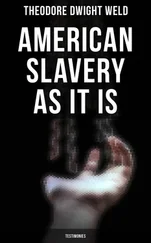Looking at Sobakin, suddenly he was overcome by feelings of hatred and revulsion such as he had never felt before. He wanted to rip apart the man’s flesh, to strangle him, to shout: “How many deep, dark secrets are buried behind that heavily decorated uniform of yours, Simon Stepanovich? How many innocent men, women and children did you murder today? How many mass graves did you fill? You’re nothing more than a beast, there is no humanity in you.”
His heart beating rapidly, Kulik tried to calm himself. He said to Sobakin soberly and carefully, “Your accusations are all without foundation. It’s true Ohrimko Suchok created trouble for Haya, but to deem him, or even me for that matter, an anti-Semite because of this is simplistic and premature. The boy has been impossible, I agree, not only toward Haya, but also toward his fellow classmates and many of the villagers. He repeatedly hurled rocks and snowballs at passersby, and on more than one occasion people came to the school to complain about him. And about anti-Semitism, I might add, in Hlaby there is no such thing because the villagers for the most part don’t really know what a Semite is or what it means. In fact, prior to Haya Fifkina’s arrival, there were no Jews in the village. This is an out-of-the-way place where people for the most part are simple-minded and accustomed only to their own kind; visitors rarely pass through. I’m working hard to try to reeducate the children and to help them adjust not only to our new social order but also to the Belorussian language. I have dedicated myself to helping create the best Soviet state I possibly can. And I trust, of course, I will have your full support in this.”
Sobakin had long since stopped listening to Kulik. Staring directly ahead of him, he seemed as if he had already come to his own conclusions. He said with a supercilious air, “It’s clear to me we’ve been led on a wild goose chase. Obviously Haya is new at her job and prone to hysteria. The way I see it, the problems in the school are standard ones, and with proper attention in time they will work themselves out.” Then directly to Kulik, in a show of friendliness, “Vanya — I hope you don’t mind me calling you by your diminutive — you’re still a young man and have a lot to learn. Despite all your shortcomings, all in all, you did the right thing with Ohrimko and I commend you for your efforts. A fine job indeed.”
Swinging around, he called out to his colleagues, “Well, gentlemen, it looks like we’ve been here long enough. Shall we be on our way?”
In a great clatter, the men found their way out of the school and across the yard to the big black car that stood waiting for them by the gates. Kulik heard the motor start up and he watched the car push off along the snow-covered road in the direction of Pinsk. His nerves were shattered. Everything that had happened was real and frightening, and yet nothing was as it seemed. He felt as if he had been tossed from one hand to another, kicked and punched, roughed up. The government officials had played their usual games and applied standard intimidation tactics, but somehow he had been able to withstand them all. They had tried to break him, to confound him, to frighten him, and they had failed. But how long before they came after him again? And in the next round he might not be so lucky.

Early the next morning before classes started, Kulik summoned the Suchoks to his office with the intention of somehow resolving, at least in part, the situation concerning their son. He expected the family to knock on his door sometime around seven, but to his great surprise, the door banged open and Ohrimko came flying across the room. His face was red and bruised and he was crying and whimpering. His father came after him waving his fists, followed by his wife.
“Get on your hands and knees and kiss the headmaster’s feet!” Suchok grabbed hold of his son’s collar and kicked him from behind. “Beg him for mercy! This will be the end of your disobedience once and for all. You’ve been a troublemaker long enough!”
Tears streamed down the boy’s cheeks as he threw himself on the headmaster, grabbing at his ankles. He whimpered louder; his words were barely audible.
Kulik looked on with shock and outrage. “Stop this exhibition at once!” he yelled. Seizing Ohrimko’s arm and pulling him up, he sat him on a chair next to his desk and handed him a handkerchief. He tried to calm him down. “Hush, quiet! I don’t want to hear any more of those noises from you.” Then glancing sharply at Ohrimko’s father, “I intend to put an end to this entire matter right now, but calmly and rationally, and in a civilized manner.”
Suchok’s face, as bullish as his son’s, crimsoned. “I’m trying to straighten my boy out once and for all. He’s always up to no good. Why did you call us here this morning? What did he do now? If there’s one thing he responds to, it’s a good thrashing. Maybe if you did the same he’d be better behaved in school.”
Kulik gave Suchok an icy glare. “I don’t want to see this sort of display in my office again. Brutality only gives rise to more brutality, and it solves nothing. Ohrimko has done nothing wrong, that’s not why I called you to my office today. Now, please, have a seat.”
Turning back to Ohrimko with a reassuring smile, he walked over to the filing cabinet, pulled open the top drawer and took out a large cardboard box. He handed it to the boy. “Here, son, this is for you.”
The boy sat frozen, his eyes fixed on the box, not knowing what to do with it. He thought maybe his punishment was inside — a rod or a leather strap. He was trembling all over.
When the headmaster lifted the lid, Ohrimko’s eyes lit up in astonishment and disbelief. Inside there were all kinds of things he had never seen before. It was all too good to be true, he couldn’t believe his eyes! First he pulled out a bright red box engine with six driving wheels, then a car, then another and another, then a handful of rails, some curved, some straight, all with small teeth at the ends.
“See these teeth at the end of the rails?” Kulik said. “When you attach them to each other, you can form a track. You can make it any shape you like. Don’t be shy. Come and help me.”
The headmaster and Ohrimko worked together quietly to assemble the parts, and before long a track in the shape of an ellipse filled the entire desk. Kulik placed the locomotive on the rails and then he and Ohrimko hooked up the five additional cars. From the box Kulik brought out four small batteries, tucked them into an opening on the side of the locomotive, and pressed a button. Almost instantly the engine took off, pulling all five cars behind it. The boy watched in excited fascination. Never had he seen anything so remarkable— a toy moving by itself, not pushed by anyone. He watched the train go round and round for the longest time, hypnotized by it.
Kulik was delighted by the boy’s reaction. He thought to himself, An impoverished child far from civilized society — with this small toy, the whole world has opened up for him.
Kulik turned to Ohrimko’s father. “Do you have a big enough table at home for this train?”
“Oh, yes, yes.” Suchok fawned, squinting and bowing. He was completely thrown off guard by what had just happened and wondered how it was that his son came to be so handsomely rewarded, and for being a troublemaker! It didn’t make any sense to him. Nonetheless, he was overwhelmed by the headmaster’s generosity, and felt deeply honored at the special attention accorded his son. “The table’s very big and strong. Yes, yes, very big. I built it myself just last spring from some oak planks.”
Читать дальше
